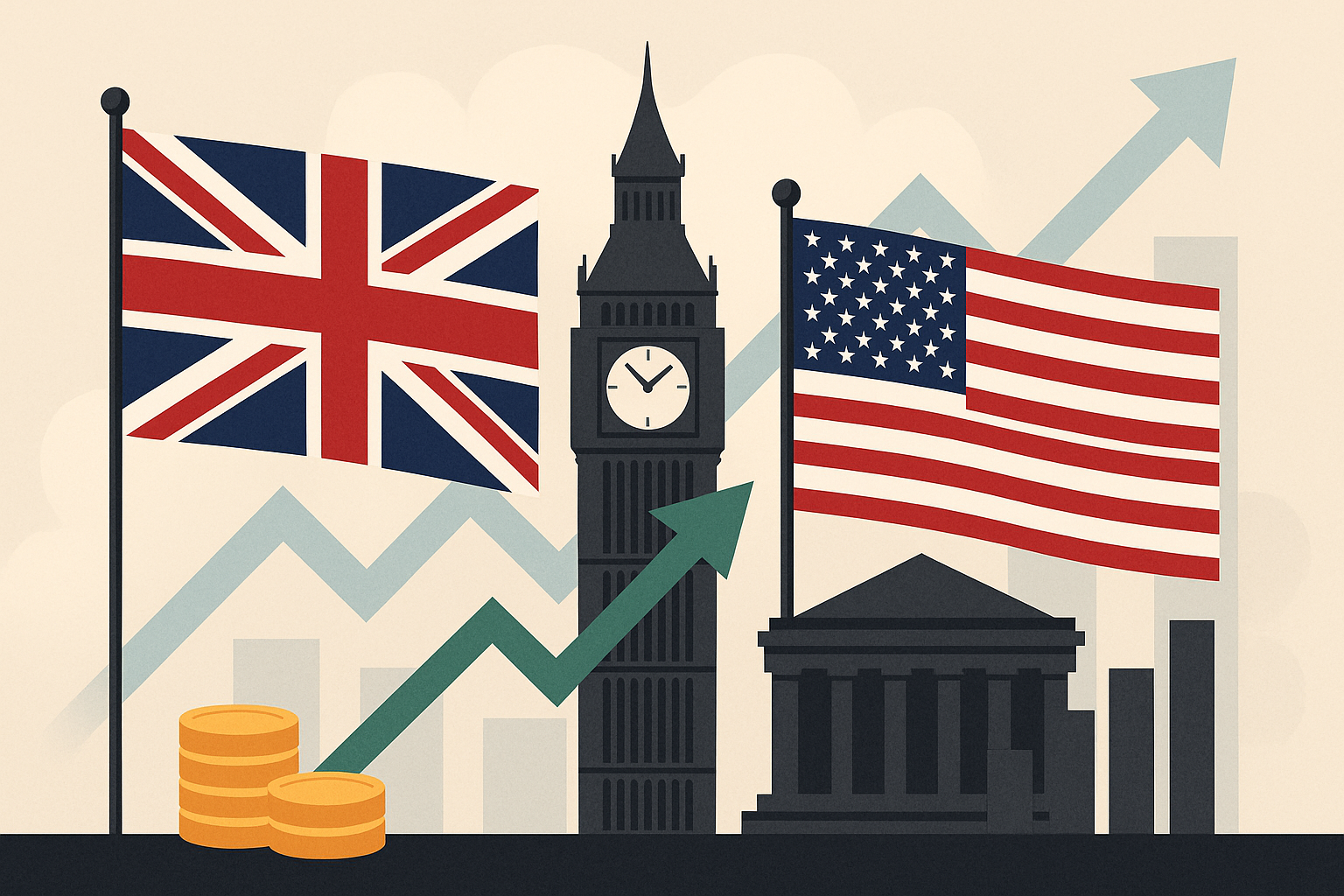UK Firms Show Resilience Amid Global Trade Policy Shifts
As global markets digest the ripple effects of new US tariff measures, a recent survey from the Bank of England (BoE) reveals a surprising calm in the United Kingdom’s corporate sector. While headlines in the U.S. and Asia are dominated by supply chain fears and trade war anxieties, only 12% of British firms view recent US tariff changes as a top concern. This statistic, reported by US News on June 5, 2025, sends a strong signal to investors: UK businesses are showing notable resilience in the face of international uncertainty.
Why This Matters for Investors
In today’s market environment, where geopolitical developments often trigger swift investor reaction, the resilience of UK businesses presents a compelling narrative. Amid escalating trade tensions between major economies, particularly the U.S. and China, Britain’s measured response highlights its current insulation from external shocks—especially in sectors less reliant on international trade.
The Bank of England’s Decision Maker Panel surveyed thousands of UK business leaders across industries, revealing a consistent sentiment: while global economic shifts are being monitored, tariffs imposed by the U.S. have not meaningfully disrupted domestic operations.
This finding carries weight for investors scanning the global landscape for stable and predictable equity plays. In contrast to companies in export-heavy economies like Germany or South Korea, many British firms, particularly in the retail, real estate, and financial services sectors, derive most of their revenues domestically.
Key Factors Behind UK Resilience
1. Limited Exposure to US Supply Chains
Unlike certain EU economies heavily embedded in transatlantic manufacturing and technology supply chains, the UK’s economic structure leans more toward services and internal consumption. As a result, the direct impact of US tariff changes is diluted for a significant portion of British businesses.
2. Strategic Business Diversification
Post-Brexit restructuring led many UK firms to diversify trade relationships, focusing more on intra-European, Commonwealth, and Asia-Pacific markets. This preemptive pivot has made firms less vulnerable to U.S. trade disruptions and more agile in global market positioning.
3. Strong Domestic Demand
Despite inflationary concerns and fluctuating interest rates, consumer confidence in the UK remains relatively stable. The Confederation of British Industry (CBI) recently reported that domestic retail and services sectors are seeing year-on-year growth exceeding 2.5%, adding a layer of buffer against international headwinds.
Future Trends to Watch
While the current immunity to US tariffs is encouraging, investors should remain cautious of emerging macro risks:
- US-UK Trade Negotiations: Any shift in UK foreign policy under a new government or in response to US electoral outcomes may introduce new trade frictions or alignments. The trajectory of bilateral trade deals will be crucial to monitor.
- Currency Volatility: The British pound has shown relative stability, but any significant U.S. monetary policy shift or UK fiscal announcement could create forex-driven investment risks or opportunities.
- Sectoral Divergence: Not all UK industries are equally shielded. Technology, aerospace, and pharmaceutical sectors with U.S. exposure may still face indirect challenges as regulatory or pricing pressures emerge overseas.
Key Investment Insight
Investors seeking low-volatility exposure in a high-volatility global environment should take a closer look at UK domestic-focused firms. Sectors such as:
- Consumer Staples
- Financial Services
- Infrastructure & Utilities
- Local REITs
…appear well-positioned for stability. ETFs and mutual funds focused on mid- to large-cap UK equities may provide attractive entry points.
Additionally, with London’s stock exchange increasingly catering to retail and ESG-focused funds, investor sentiment is buoyed by robust dividend yields and governance standards—key factors in portfolio resilience.
Navigating the Opportunity
While tariff drama unfolds on the world stage, UK companies are quietly maintaining operational consistency. For investors, this isn’t just noise—it’s a signal.
The combination of strong domestic demand, diversified trade partnerships, and limited exposure to US policy risks makes the UK a standout among developed markets in 2025.
To stay ahead of unfolding economic developments and uncover investment trends that matter, subscribe to MoneyNews.Today — your daily edge in a fast-moving financial world.





